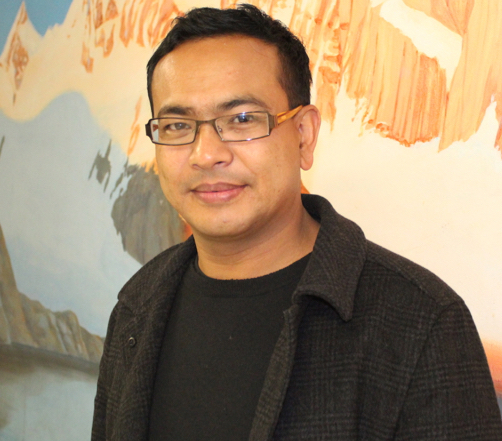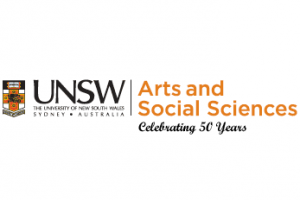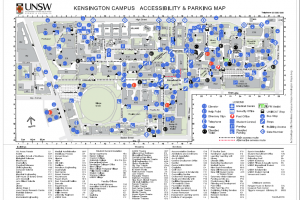
My Expertise
In Nepal, India (South Asia, generally) and Australia:
Environmental justice
Indigenous knowledge
Disaster risk reduction
Political ecology
Environmental governance
Community-based natural resource management
Climate change adaptation
Development planning and policy
Food and water security
Slums and alternative development
Sustainable livelihoods
Keywords
Fields of Research (FoR)
Human geography, Development studies, Environmental geography, Development geographyBiography
Krishna is Professor of Global Development at the UNSW ADA School of Social Sciences. He is a development and environmental geographer with research interests encompassing: Global Indigenous Studies; Critical Development Studies; Environmental Governance; Disaster Resilience, and Climate Change Adaptation, in particular the intersection of the five with his work on Environmental Justice.
Krishna is an Indigenous scholar with global...view more
Krishna is Professor of Global Development at the UNSW ADA School of Social Sciences. He is a development and environmental geographer with research interests encompassing: Global Indigenous Studies; Critical Development Studies; Environmental Governance; Disaster Resilience, and Climate Change Adaptation, in particular the intersection of the five with his work on Environmental Justice.
Krishna is an Indigenous scholar with global recognition and local grounding. He has an enduring passion and commitment to the ethical and accountable research, education, and leadership. His scholarship works alongside a commitment to activism and public engagement and addresses urgent questions pertaining to indigenous rights, climate justice, public policy, the right to land and the everyday and systemic struggles that continue to dominate the lives of the most marginalised communities in the world. He focuses on scholarship, engagement, and leadership to effect real impacts in practice and policy, and these activities are driven by the belief that cultural and contextual underpinnings are fundamental to re-conceptualise research design and methods and to produce alternative data and evidence to contest hegemonic knowledge. Most of his work is interdisciplinary and empirically based in South Asia and integrates indigenous, social, and natural science methodologies to examine the relationship between social, cultural, political, and ecological systems.
Krishna's work constitutes blending moral philosophy and theories of justice with critical development studies, political ecology and communicative action. His research on these five themes simultaneously engages with grand theory and real-world societal challenges. He uses grounded analysis of socio-political and ecological dynamics through a multi-scale perspective where the role of unequal power relations in constituting a politicised environment is a central theme. His research gives particular attention to the ways in which problems of justice are linked to systems of social hierarchy and political and economic control. He uses a ‘critical pragmatic’ approach to development and environmental problems in which rigorous explanation is balanced with carefully considered policy alternatives. Most of his work is interdisciplinary and empirically based which integrates indigenous, social and natural science methodologies to examine the interrelationship between social and natural systems. His research, teaching and engagements are driven by the belief that cultural and contextual understandings arte vital for education and science to shift paradigms, enabling alternative ways to understand and address complex social and environmental challenges.
Currently Professor of Global Development at the School of Social Sciences, ADA, UNSW Sydney, Krishna was Program Director at the Urban and Regional Planning and Policy at the University of Sydney. He also held various positions at the University of Queensland, Macquarie University and the Department of Forests in Nepal Government. He was a visiting scholar at the Department of Geography, Cambridge University, UK, and Visiting Senior Research Fellow at Asia Research Institute at National University of Singapore (NUS). He served as a member of the Academic Board at the University of Sydney. He is the recipient of the Endeavour Research Fellowship by the Australian Government. He has an interdisciplinary qualification, with higher degrees in Geography (PhD Sydney), Higher Education (Grad. Cert. Sydney), Environmental Policy and Management (MEEM, UTS) and Forestry (BSc TU Nepal).
My Qualifications
Doctor of Philosophy (The University of Sydney)
Master of Environmental Engineering Management (UTS)
Graduate Certificate in Higher Education (Sydney University)
Bachelor of Science in Forestry with Distinction (TU, Nepal)
My Awards
- 2022 Letter of Appreciation by Honorable Minister of Forests and Environment, Government of Bagmati Province, Nepal
- 2022 Crisis Leadership Award, Bridge The Gap Nepal, Australia
- 2022 Visiting Senior Research Fellowship, Global Interdisciplinary Studies (GIIS) Nepal
- 2021 National Election Commissioner, Non Resident Nepalese Association (NRNA (Australia)
- 2021 National Co-ordinator, Charity and Grant Program, NRNA Australia
- 2020 Maitripur Mahabihar Conservation Committee Award 2022, Nepal
- 2019 Community Empowerment Award, BTGN Australia
- 2018 Visiting Senior Fellowship, Nepal Institute for Policy Research
- 2017 Policy Advisor, NRNA Australia
- 2016 Visiting Scholar, Department of Geography, University of Cambridge, UK
- 2016 Senior Visiting Research Fellowship, Asia Research Institute, Singapore National University
- 2013 Outstanding Contribution to Nepalese Society in Australia Award, by former Prime Minister of Nepal Dr Babu Ram Bhattarai
- 2012 Endeavour Research Fellowship, Australian Government
- 2009 Research-led Teaching Award, Faculty of Architecture, U. of Sydney
- 2008 Maxwell Ralph Jacobs Award, Institute of Foresters Australia
- 2007 UQ ResTeach Fellowship, University of Queensland, Australia
- 2006 UQ Postdoctoral Fellowship2004 Best Paper Award, (“Sustaining inequity?”), Australian Forest History Society
- 2001 Australian Postgraduate Award, University of Sydney
- 2002 Postgraduate Student Award, Institute of Australian Geographers, Australia
- 2001 GHS & IR Lightoller Scholarship, University of Sydney
- 2001 Baillieu Research Scholarship, University of Sydney
My Research Activities
- Food security and livelihood in Nepal
- Disaster Resilience and Indigenous Peoples in Nepal, Australia and the USA
- Climate justice in India and Nepal
- Reframing development planning and policy
- Political ecology of community-based natural resource management in Australia and Nepal
- Indigenous knowledge lab and alternative data
- Political representation of South Asian diaspora in Australia
My Research Supervision
Areas of supervision
Critical Development Studies
Global Indigenous Studies
Environmental justice
Disaster Resilience
Climate change adaptation
Development planning and policy
Political ecology
Food, Water and Livelihood Security
Nepal, India, Bangladesh (South Asia generally) and Australia
Currently supervising
Critical Development Studies, Indigenous Peoples and the Environment, Disaster Resilience, Food Security and Climate Change Adaptation (South Asia, Australia)
My Engagement
- International Editorial Board Member - Local Environment (2021 - present)
- Editorial Board member – Climate, Disaster and Development Journal (2019 to present)
- Associate Editor, Asia Pacific Viewpoint (2017 to present)
- Editorial Board Member – Journal of Forests and Livelihoods (2017 - 2020)
- Editor - Scientific and Technical Paper Series, EnLift and Forest Action Nepal (2018 - present)
- President, Indigenous Knowledge Lab (IKL) Incorporated, Australia (2018 - present)
- Co-convenor, ADA Human Geography Network, UNSW (2022 - present)
- National Co-ordinator (Charity and Grant Program), Non-Resident Nepalese Association (NRNA) Australia (2021 to present)
- Chief Advisor: Bridge The Gap Nepal (BTGN) (2017 - present)
- Advisor, NRNA Australia (2021 - present)
- Chair of the Advisory Board, Nepalese Australian Football Association (2018 - present)
- Co-convenor, Critical Development Studies Group, Institute of Australian Geographers (2018 - 2022)
- Global Vice-President, Institute of Cultural Affairs International (2012 - 2016)
- Member, Institute of Australian Geographers (IAG)
- Affiliate - UNSW Climate Change Research Centre
- Member, American Association of Geographers (AAG)
- Voting Member, Institute of Foresters Australia (IFA) (2005 - 2010)
- Life Member, Nepal Foresters Association (NFA) (Life Member)
- Corporate member, Planning Institute Australia (PIA) (until 2012)
- Member, NSW Landcare Inc. (Board Member 2007 to 2012)
- Member, Community Advisory Committee for SBS Board (2007 – 2012)
- Councillor: New South Wales Geographical Society (2014 - 2019)
- Justice of the Peace (Qualified) since 2006.
My Teaching
Krishna is Convenor of Masters of Development Studies. He teaches courses in Development Studies at both undergraduate and postgraduate levels. His courses focus on the debates on the intersection between development and environment, with specific reference to development planning and policy, environmental and climate governance, disaster resilience and justice in the Asia-pacific context. His teaching is based on the belief that teaching is a collective journey – a journey that is shaped by active dialogue and participation of teacher and student. Within this philosophy, his teaching goal is to maximise student learning and satisfaction by the provision of a supportive, engaging and student-centred learning environment and an innovative teaching strategy which encourages critical reflective and deep learning. In order to adopt his teaching philosophy and goals, there are some core elements to his teaching approach that span all his teaching activities. First, he treats students with respect; second, his teaching materials are always well organised and prepared; and third, he is always seeking feedback on his teaching and is open to new approaches.
PhD/ Masters supervision:
Krishna welcomes applications for higher degree supervision in his areas of expertise in the areas such as a) disaster resilience and justice, b) equity in urban/regional planning and policy, c) climate justice and climate change adaptation, d) justice and governance of food security, e) participation and natural resource management, and f) political ecology, particularly from Nepal, India, Bangladesh and other developing countries.
His supervision strategy at the Masters and PhD level seeks to enhance student capacity to act as independent, critical professionals and engaged leaders competent at a global level. Over the years, he has successfully supervised a number of research students and continues to re-energise a ‘research group’, of which research students have been an integral part. His approach to research supervision is to tailor supervision to the individual needs and skills of the students. He has assisted them in planning their project, helping them identifying methods to be applied and facilitating them in accessing information and developing their skills to undertake the research.


